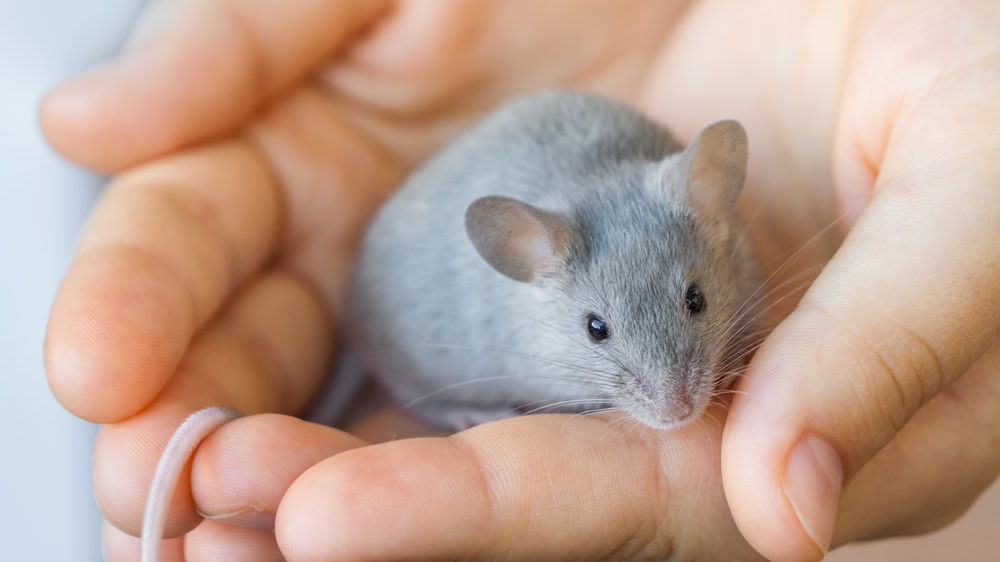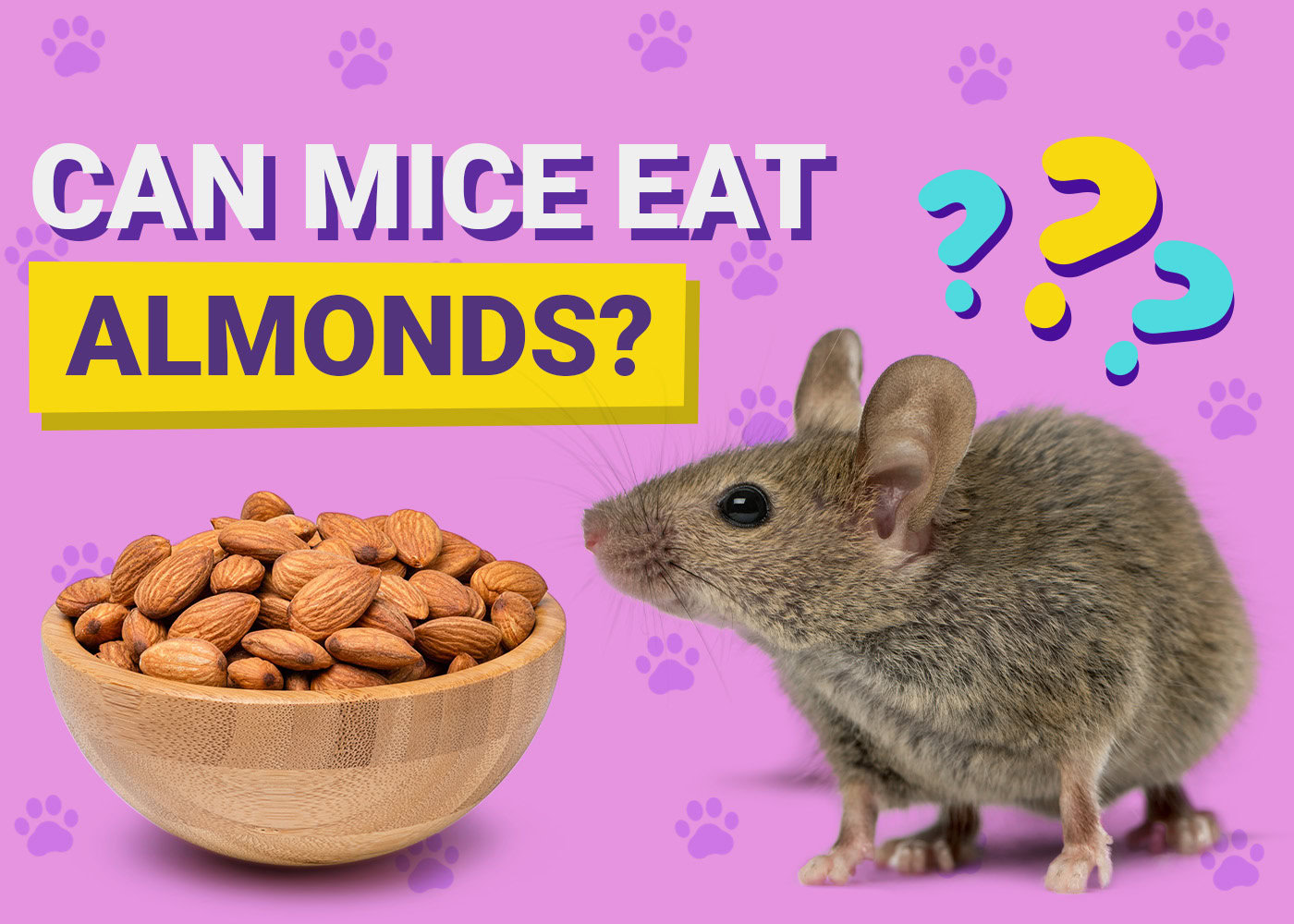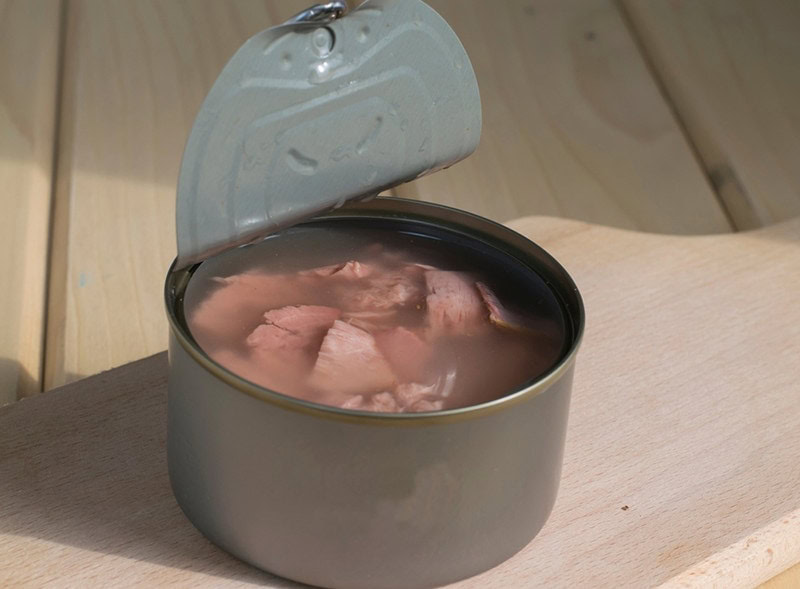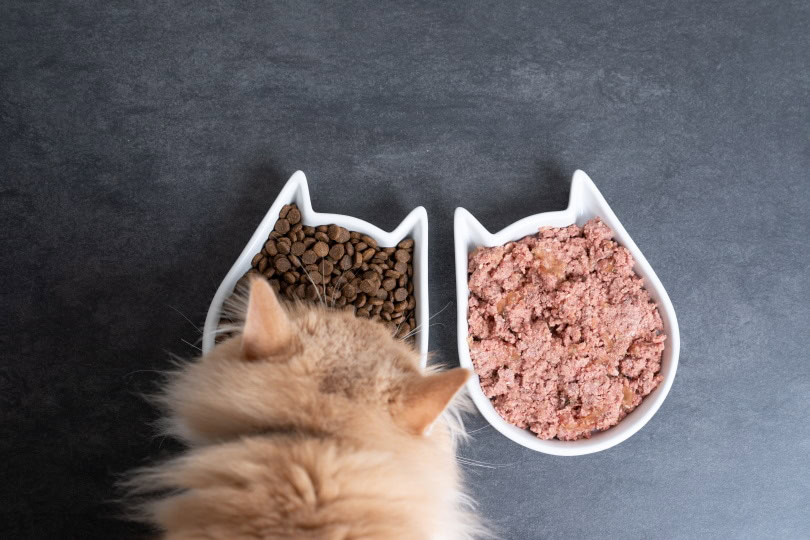VET APPROVED

The information is current and up-to-date in accordance with the latest veterinarian research.
Learn more »Click to Skip Ahead
Even if your little pet mouse is omnivorous, that doesn’t mean they can eat just about anything. Being fond of bread, boiled rice, and cookies, they are also a big fan of candies, chocolate , and French fries, foods that are harmful to them because they can cause severe intestinal problems or toxicosis.
Most unroasted and unsalted dried fruits, such as hazelnuts, walnuts, and sunflower seeds, can be fed to your pet mice in small amounts. What about almonds? Almonds are also considered a healthy but occasional treat that you can safely feed your mice. Steer clear of bitter almonds, though!

Can Almonds Be Poisonous to Mice?
First off, there are two types of almonds: sweet or bitter.
Sweet almonds are the ones you find at your favorite store and in foods made from these nuts (like marzipan or almond milk). They are safe to eat, both by you and by your small domestic rodent. Indeed, they are rich in polyunsaturated fatty acids (omega-6), proteins, dietary fibers, as well as vitamin E and other minerals. However, due to their high-calorie content, keep an eye on your serving size: a handful of almonds consumed daily is more than enough for most people. And in the case of the mouse, the recommended portion is even smaller: a single nut, cut into small fragments, is more than enough and should only be offered around once or twice a week.
On the other hand, bitter almonds can be poisonous for both humans and mice, even in small quantities; in fact, it contain amygdalin, the molecule responsible for the bitterness and toxicity of this type of almond. Moreover, it can accumulate in bitter almonds in amounts around forty-two times greater than that found in sweet almonds.
After ingestion, amygdalin is hydrolyzed to cyanide in the small intestine. Cyanide has very high acute toxicity: according to some studies, the lethal oral dose of cyanide in humans has been estimated to be approximately 0.5 to 3.5 mg/kg body weight. That corresponds to between 10 and 70 raw almonds for a 150-pound adult.
Amygdalin is of medical interest because it is thought to have some anti-cancer properties.For this reason, bitter almonds are popular in some parts of the world and a commonly featured item in Chinese traditional medicine. Amygdalin of various concentrations has been used on mice experimentally to see if it may help with certain human ailments. However, this doesn’t mean bitter almonds are safe for your pet mouse.
Experimental studies have very precisely measured concentrations of amygdalin, and don’t use bitter almonds to reach these doses. More importantly, it is generally understood that an experimental study (especially those with mice) would usually involve the euthanasia of the animals involved towards the end of the study. This is obviously not the case with pet mice. As such, you shouldn’t offer your pet mouse bitter almonds.
It is also worth noting that in some parts of the world, the sale of bitter almonds is controlled or restricted by laws and regulations.

Are Sweet Almonds Always Safe?
Sweet almonds are generally safe for mice, but caution is still recommended when offering these to your pet. This is because almonds are susceptible to being contaminated with aflatoxin (which isn’t visible to the naked eye). Aflatoxins are mutagenic carcinogens (cancer causing substances) produced by certain molds.
Though some jurisdictions have laws which require almonds to be thoroughly tested or pasteurized before being sold to the public for consumption, it’s always a good idea to double check the source of your almonds and to keep an eye (and ear) out for any recalls announced on food products.
What Is the Ideal Mice Diet?
Mice are omnivorous animals, and are considered opportunistic foragers. To cover the fundamental bases of the nutritional intake of your pet mouse, the best starting point is to purchase mice pellets from pet stores.
The pellet you select for your pet should be specifically formulated for mice. It is common to find pellets which are considered compatible for multiple rodents kept as pets (for example, a mouse and hamster pellet). Such options are also acceptable, as the fundamental nutritional requirements of both species can be met with a similar pellet base.
Pellets alone are not enough for your mice though. They do require their diet to be supplemented with a small amount of seeds and grains, safe vegetables and fruits, and sources of food which promote chewing and are high in fiber (such as hay).
For a detailed analysis of the diet your mouse requires, it’s best to consult your veterinarian, as they would be able to advise you on a diet which would be best for your pet and their current life stage.


Final Thoughts
Sweet almonds are safe for your pet mouse. However, they should only be offered to them in moderation and ideally, only pasteurized products should be offered to your pet. A mouse’s diet is conceptually simple. However, unique factors such as your pet’s age, reproductive status, and overall health definitely warrants specialized input from a veterinarian for an optimal nutritional plan.
Featured Image Credit: USBFCO, Shutterstock










